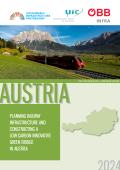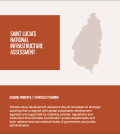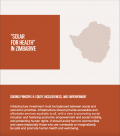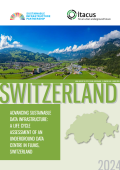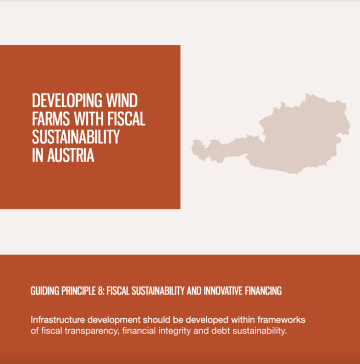
After the global financial crisis of 2007-2008, Austria and Europe faced significantly reduced levels of investment and growth, creating a need to improve the business environment for raising funds for infrastructure. At a national level, Austria strengthened its policy and regulatory arrangements by building comprehensive frameworks for sustainable development, fiscal policy and environmental management. In this context, Austria has developed renewable energy infrastructure through projects such as the European Investment Bank (EIB)-financed “Windfarms Prinzendorf and Powi” which contribute to sustainable infrastructure development while ensuring fiscal sustainability.
This case study illustrates Guiding Principle 8: Fiscal Sustainability and Innovative Financing and is part of a series of ten case studies which aim to inform the forthcoming wave of global infrastructure investment. Collectively, they specify and demonstrate how environmental, social and economic sustainability must be integrated right across infrastructure policymaking at the systems-level. The individual principles and case studies were developed via ongoing global consultation and inputs from experts and UN Member States, as part of implementation of the UN Environment Assembly (UNEA) Resolution 4/5 on Sustainable Infrastructure.
These publications have been made possible by the financial support of the Global Environment Facility, the Swiss Federal Office for the Environment, and the Partnership for Action on Green Economy.

